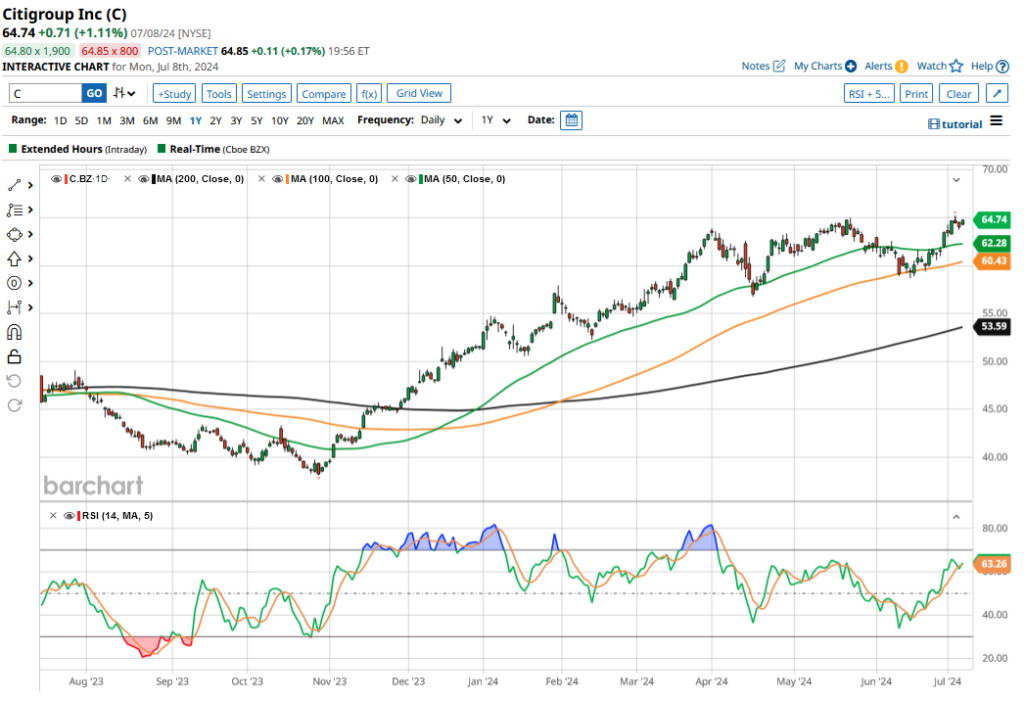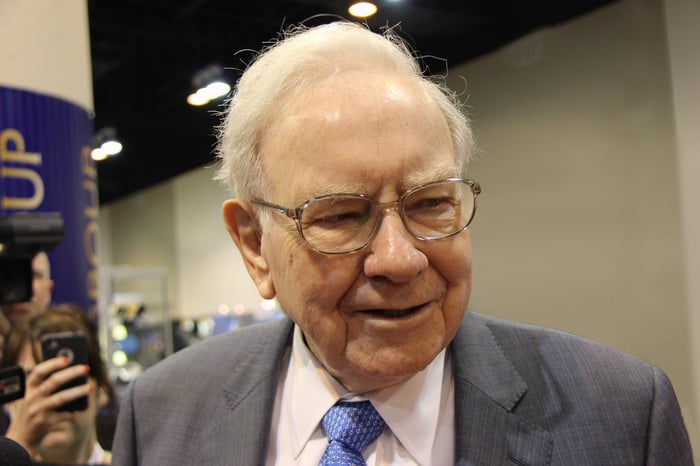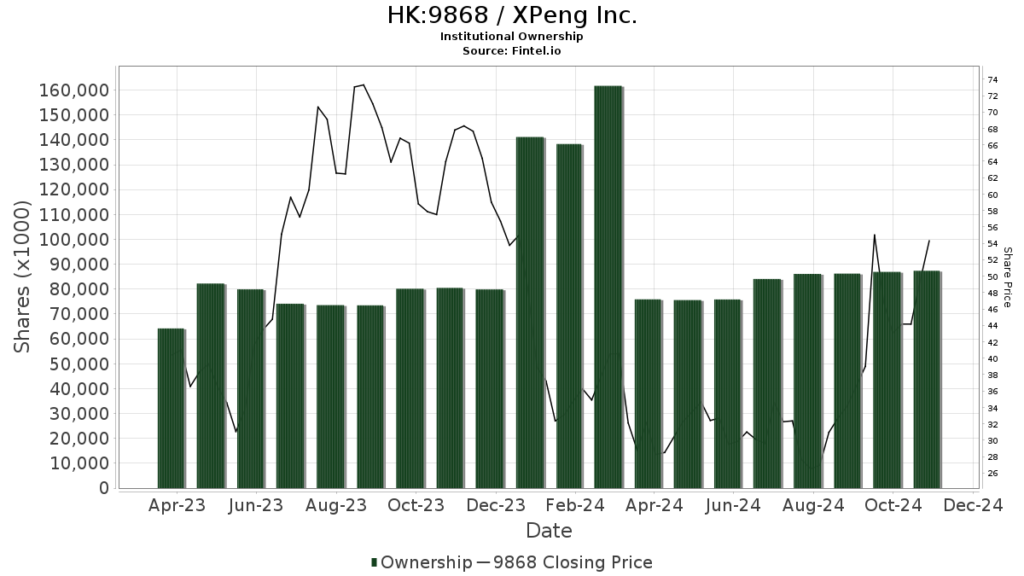Berkshire Hathaway (BRK.B), under the stewardship of Warren Buffett, holds significant stakes in various publicly traded companies, many of which offer substantial dividend yields. Notable holdings include long-time positions like Kraft-Heinz (KHC) and Coca-Cola (KO). However, Bank of America (BAC) stands out as the largest contributor to the conglomerate’s dividends, following Apple (AAPL).
Despite Buffett’s reduction in bank holdings, Citigroup (C) emerged as a recent investment in 2022, coinciding with the bank’s operational overhaul led by CEO Jane Fraser, aimed at streamlining operations and reducing costs.
The astounding progress resulting from these initiatives is reflected in Citi’s stock performance, marking nearly a 30% increase year-to-date, outperforming the S&P 500 Index and industry peers such as JPMorgan Chase (JPM) and Wells Fargo (WFC).
With a forward dividend yield of 3.4%, more than double that of the S&P 500 Index and ahead of many other banks, the question arises – is investing in Citi stock for its healthy dividends a smart move?

Citigroup’s Ongoing Transformation Journey
A corporate “turnaround” or “transformation” often signifies a prolonged process to revive a business, a term ubiquitous in boardroom discussions. Fraser emphasizes the multi-year nature of Citi’s transformation, acknowledging the non-linear trajectory and the ongoing challenges that need to be addressed. Through actions like exiting international consumer banking markets and enhancing agility, Citi aims for long-term structural cost savings despite short-term performance impacts.
While these measures may currently affect the bank’s financials due to restructuring costs, they are projected to yield significant earnings per share (EPS) growth, with analysts forecasting a substantial 22% rise in 2025 compared to a modest 3.9% increase in 2024.
Opportunity in Citi Stock’s Valuation
During the Q1 earnings call in April, Citi disclosed a tangible book value per share of $86.67, implying its current stock price trades at less than 75% of this value. With a price-to-book value multiple of 0.65, Citi appears undervalued, especially when contrasted with peers like BAC, WFC, and JPM.
Citi’s historical trend of trading at a discount, substantiated by metrics such as return on assets (ROA) and return on equity (ROE) falling behind industry competitors, underscores its undervaluation potential. The bank’s profit margins also demonstrate a lag compared to its peers.

Anticipating a Reevaluation in Citi’s Valuation
Although Citi’s forward price-to-earnings multiple of 11x roughly aligns with industry norms, its price/earnings-to-growth (PEG) multiple, below 1x and the lowest among leading U.S. banks, suggests lingering undervaluation. With a focus on enhancing growth and return metrics, Citi aims for a medium-term revenue growth CAGR of 4%-5% and a return on tangible capital between 11%-12%.
Despite ongoing efforts to meet these targets, particularly improving return on capital, a potential valuation rerating becomes plausible as Citi’s transformation translates into financial outcomes.
Insights into Citi’s Future and Analyst Recommendations
Wall Street analysts offer a “Moderate Buy” consensus rating for Citigroup stock, with majority of analysts viewing it as a “Strong Buy.” The mean target price of $66.50 aligns closely with current prices, but analysts may revise these upwards post the upcoming Q2 earnings report.

With a dividend yield of 3.4% and a recent dividend raise post the Fed’s stress test, Citi stands out amongst peers. Combining a hearty dividend yield with potential capital appreciation, Citi remains a prominent Warren Buffett stock, poised for further growth as valuations realign with industry standards.




